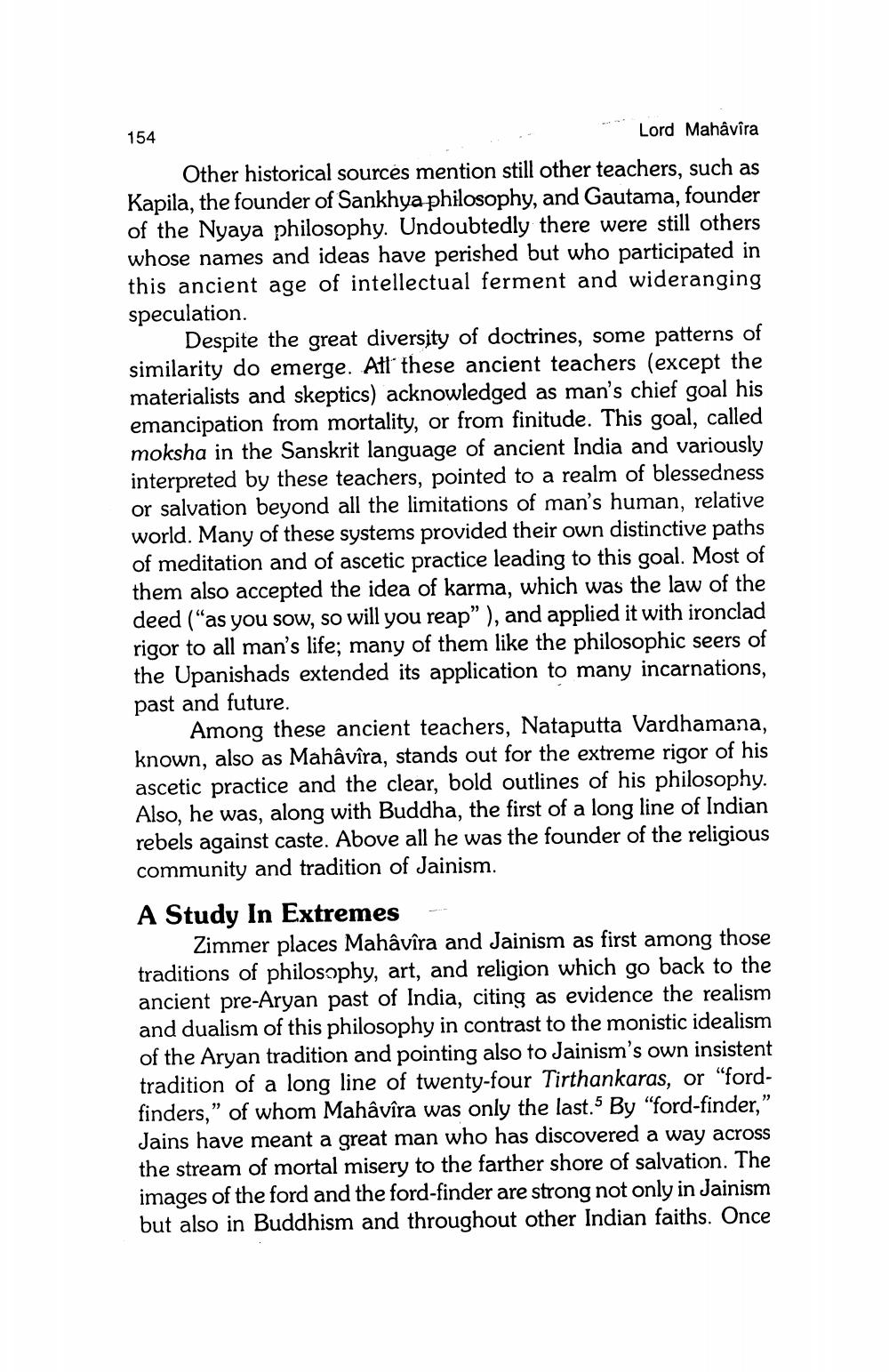________________
154
Lord Mahâvîra Other historical sources mention still other teachers, such as Kapila, the founder of Sankhya philosophy, and Gautama, founder of the Nyaya philosophy. Undoubtedly there were still others whose names and ideas have perished but who participated in this ancient age of intellectual ferment and wideranging speculation.
Despite the great diversity of doctrines, some patterns of similarity do emerge. All these ancient teachers (except the materialists and skeptics) acknowledged as man's chief goal his emancipation from mortality, or from finitude. This goal, called moksha in the Sanskrit language of ancient India and variously interpreted by these teachers, pointed to a realm of blessedness or salvation beyond all the limitations of man's human, relative world. Many of these systems provided their own distinctive paths of meditation and of ascetic practice leading to this goal. Most of them also accepted the idea of karma, which was the law of the deed (“as you sow, so will you reap”), and applied it with ironclad rigor to all man's life; many of them like the philosophic seers of the Upanishads extended its application to many incarnations, past and future.
Among these ancient teachers, Nataputta Vardhamana, known, also as Mahâvîra, stands out for the extreme rigor of his ascetic practice and the clear, bold outlines of his philosophy. Also, he was, along with Buddha, the first of a long line of Indian rebels against caste. Above all he was the founder of the religious community and tradition of Jainism.
A Study In Extremes --
Zimmer places Mahâvîra and Jainism as first among those traditions of philosophy, art, and religion which go back to the ancient pre-Aryan past of India, citing as evidence the realism and dualism of this philosophy in contrast to the monistic idealism of the Aryan tradition and pointing also to Jainism's own insistent tradition of a long line of twenty-four Tirthankaras, or "fordfinders,” of whom Mahâvîra was only the last." By "ford-finder,” Jains have meant a great man who has discovered a way across the stream of mortal misery to the farther shore of salvation. The images of the ford and the ford-finder are strong not only in Jainism but also in Buddhism and throughout other Indian faiths. Once




